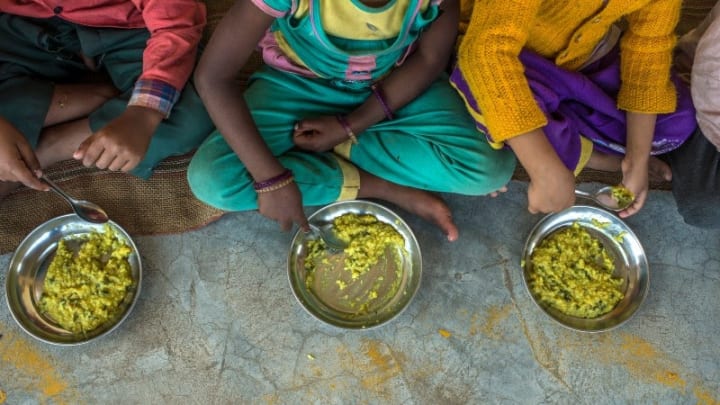
ST. PAUL, Minn. — A group of partner governments and nutrition organizations on Monday kicked off the 2021 “Nutrition Year of Action” to galvanize nutrition commitments in the lead-up to the 2021 Nutrition for Growth Summit, with a particular focus on meeting the needs of women and girls.
Nutrition for Growth, originally scheduled to be held this month, was postponed until next December because of the COVID-19 pandemic. 2020 was meant to be a year to mobilize country governments, implementing organizations, donors, multilaterals, and the private sector to make concrete commitments to improving nutrition outcomes — such as stunting, wasting, and obesity rates — in the final decade for achieving the 2030 Sustainable Development Goals.
COVID-19 has made the necessity of accelerating progress on nutrition even more pressing, said representatives from Canada, Bangladesh, and Japan, which hosted the kickoff event for the year of action. An additional 270 million people are predicted to go hungry in 2020 because of the coronavirus, while the number of children living with the effects of wasting is expected to rise to 6.7 million within the pandemic’s first year.
“This concerning trend is expected to extend until at least 2022, and the effects could last for generations,” said Karina Gould, Canadian minister of international development. “One of our best defenses is to support good nutrition as a first line of defense against the health consequences of COVID-19.”
People suffering from malnutrition have been found to be more susceptible to the coronavirus, and Gould said the world must recognize the links between nutrition and food security, health, water, and sanitation, as well as the gender aspects of access to safe and nutritious food.
Nutrition for Growth, first hosted by the United Kingdom in 2013, is meant to be held by Japan alongside the Olympic Games, which have also been postponed until 2021. Approximately $3 billion in commitments and recommitments were made Monday at the kickoff event, but it was not immediately clear what percentage of that was new money. Canada announced $407 million in nutrition-specific funding over five years, which had originally been announced in 2019 as part of a commitment to global health.
“Nutrition is the key that will give women and children the chance not just to survive but truly thrive, and that benefits everyone.”
— Melinda Gates, co-chair, Bill & Melinda Gates FoundationGould said that although women often play an integral role in securing food for their families — planting, harvesting, and preparing it — they were too likely to eat last and eat the least. She said Canada is prepared to invest additional funds to prevent a “looming food security crisis” caused by COVID-19.
The kickoff is the first in a series of events to mobilize nutrition investments as an integral part of COVID-19 recovery. Melinda Gates, co-chair of the Bill & Melinda Gates Foundation, said her organization planned to make a future commitment in 2021 and was particularly concerned about the impact malnutrition has on women and girls.
Although it can be largely invisible, anemia “robs” the health of 1.5 billion women and girls each year, Gates said, and progress was slow even before the pandemic. She said scaling up interventions could save nearly 800,000 children’s lives and put more than $110 billion back into the economy.
“It’s time to stand up for women and girls and break the cycle. Undernutrition is the cause of nearly half of all child deaths worldwide. And yet less than 1% of donor funding is dedicated to it. Just imagine how many lives we could change if we could double or triple that amount,” Gates said. “Nutrition is the key that will give women and children the chance not just to survive but truly thrive, and that benefits everyone.”
Pakistan made a $2.18 billion commitment to address malnutrition and stunting by 2025, which Health and Family Welfare Minister Zahid Maleque said will help ensure that the country’s rates of malnutrition continue to decline, an ongoing trend since 2015.
World Vision International committed to spend $500 million on nutrition by 2025, an extension of a 2013 commitment.
UNICEF Executive Director Henrietta Fore said her agency would invest at least $700 million per year for five years in nutrition programs serving children, adolescents, and women. She said that nutrition gains since 2000 — including reducing the number of stunted children by 55 million — show that further progress is possible.
Mamta Murthi, vice president for human development at the World Bank, said health service disruptions caused by the pandemic could cause an additional 1.2 million people in International Development Association countries and 1.2 million in International Bank for Reconstruction and Development countries to be stunted. Losses from stunting and other adverse nutrition effects such as maternal anemia are estimated to be between $15 billion and $44 billion, she said.
“The COVID-19 crisis threatens to reverse a decade of progress in human capital, which is at the foundation of the economic productivity of countries and opportunities for people,” Murthi said. “Addressing the COVID-19 crisis and its impacts on human capital will require extraordinary effort, international cooperation, mobilizing financial resources and innovating solutions, and coordinating a range of public and private sector efforts to ensure that critical investments can continue to be made in people.”
Murthi said the World Bank was committing $500 million in early response financing from the IDA19 Crisis Response Window to address food insecurity crises.
Nutrition advocates also stressed the need to connect Nutrition for Growth to the 2021 U.N. Food Systems Summit, scheduled to be held alongside the U.N. General Assembly in September.
“While summits can be postponed, these targets cannot. We cannot simply reschedule them, just as we cannot simply reschedule malnutrition,” said Lawrence Haddad, executive director at the Global Alliance for Improved Nutrition. “We’re at the threshold of the most important 12 months for nutrition perhaps ever. It’s the starting line — today is the starting line — of a 12-month sprint for nutrition action.”




